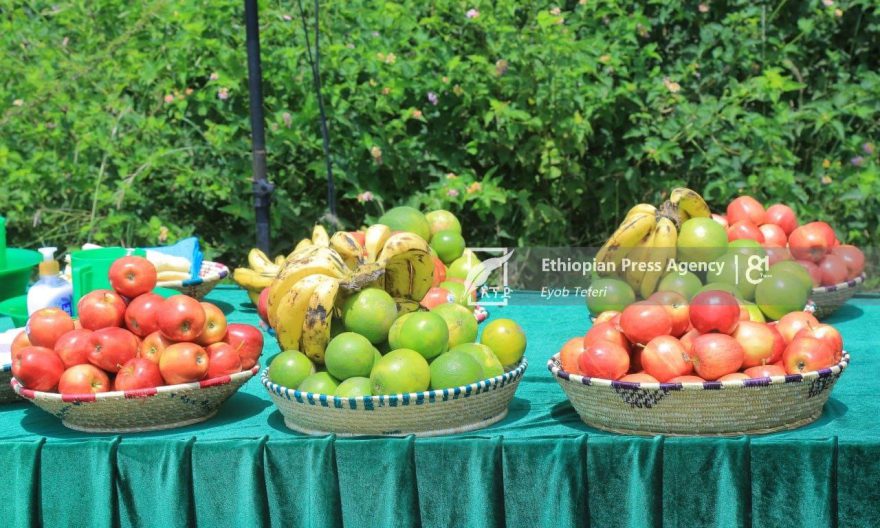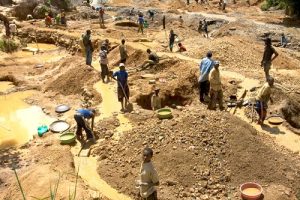
The government is working to increase the production and productivity of fruit growing and to ensure food security, especially through the Green Legacy Initiative. It is known that avocado cultivation has been given attention in the field of fruit cultivation. This development task is being worked on not only to replace what is bought from abroad but also to increase the earning of foreign currency by offering it to the foreign market, it is being worked on.
However, there are complaints about the development and export earnings. It is also suggested by some developers that domestic sales are better than exports. Abdella Negash, Executive Director of Horticulture Development at the Ministry of Agriculture, gave an explanation about the matter. He believes that it is important to improve the various gaps in the sector. However, he says that it should not be concluded that what is sold in the country will contribute to the income from what is offered to the foreign market.
According to Mr. Abdela’s explanation, since the produce arrives, most of the producers harvest their produce at the same time. When there is surplus product in the market, prices fall. An abundance of produce will be served. When there is an abundance of produce, it is expected to increase competitiveness. Here, it is necessary to pay special attention to quality. Especially during this season, production is expected to increase. Ethiopia now competes with its neighbors, and this is a good opportunity.
From the point of view of the market, as Abdela explained, there is a market for all kinds of fruits, but bananas and avocados are in high demand, and their share is high. The development is taking into account the needs of the foreign market and is being developed widely. Currently, vegetables and fruits are being cultivated on 162 thousand hectares of land. More than 19 million quintals are produced. Banana cultivation has the largest share of the development, both in terms of land area and production.
Earlier, mango was second in terms of covering a huge land area. However, due to the occurrence of a pest that attacks mangoes, the area of land is decreasing and the production is also slowing down, so it is the avocado vegetable that occupies the second place. The vegetables that are being produced are selected varieties that have a better market. In this way, attention is paid to it, and it allows us to benefit as a country.
Although the development work is being done in this way, Abdela mentioned that there will be various challenges in providing the market with what it needs. One of the challenges faced is cold storage, which can keep the product in a cold chain at the development site; not using a product collection method that prevents the product from being wasted and useless during product collection; loading it with different things during the transportation process; not being careful to maintain the desired temperature and cold level; and other related issues. These also lead to reduced product quality. As quality decreases, so does market demand.
Abdela stated that it is appropriate to focus on development in order to increase production and productivity by gathering products and ensuring that needs are fulfilled even after production. They pointed out that if productivity cannot be run side by side to meet the demands of the market, the impact will increase. He declared that good agricultural practices are important for the market.
According to Abdela’s explanation, it was difficult to estimate the selling price due to the lack of work to be done to reduce the quality. Arguing that the product is not of good quality, it is necessary to provide it at the price that the market demands. Thus, the effort to break into the European market is limited. It is known that there is a high demand in the Middle East and Far East countries, but due to the poor quality they produce, it is not being supplied as needed. Currently, 80 to 90 % of market destinations are Djibouti, Somalia, and other neighboring countries. Efforts are being made to earn foreign currency by sending it to these countries.
Abdela mentioned that although there are things to be done, unexpected things are challenges for the sector. As he said, in relation to the security problem facing the country, there is a challenge in supplying the avocado product produced in the Amhara region to the foreign market. If the security risk cannot be addressed, the manufacturer will not be motivated to produce again. The products are prone to failure due to their nature, and if they cannot be marketed quickly, they will incur losses. This is another threat to the manufacturer, so they are not encouraged to produce. Such concerns can be mitigated by involving your industry experts and those who work on them to create a bond with the manufacturer. National stability also requires standing with the government.
Another is to go through the process of obtaining a certificate of authenticity, meeting various requirements, finding buyers, and so on. Following this, there is a non-payment of the price required to supply to the foreign market. If an effort is made to produce quality with its own label, Ethiopian fruit is in demand in the foreign market because it is natural (organic). If hard work can be done, they can be brought to the market with a selling price. The current foreign market is not disappointing. It helps to strengthen what is there and fill gaps. Here is the alternative. Mr. Abdela pointed out that foreign investors are also showing interest in avocado development in Ethiopia, and there is something promising.
Another thing that needs to be done is promotion. They said that it is expected to promote the product in different countries, and the parties who have to work in this regard should fulfill their roles. He said that the producer should be encouraged to offer a better price. Brokerage is a hindrance to the sector. By raising and lowering prices, they create problems by misleading the manufacturer and the exporter. This also requires joint work. He pointed out that all the stakeholders are doing their part and working together to achieve what is expected from the sector. He stated that the Ministry of Agriculture will try to resolve the obstacles in the sector by bringing them up in the consultation forum with the stakeholders. Even after the discussion, he is trying to continue the work by evaluating who did what.
Costantinos Berehesef (PhD), an economist, said there are many countries that produce and market avocados on a large scale. Ethiopia also competes with these producing countries. If various fruits, including avocados, were not produced in Ethiopia, it would have been necessary to import them from abroad. Therefore, it is appropriate to work on increasing production. When a product is produced on a large scale, there is an opportunity for the local consumer to buy it at a lower price.
According to Dr. Constantine’s explanation, currently, domestic demand is growing. As interest grows, so does the person who spends money on small things. When faced with currency fluctuations and inflation, the producer or farmer wants to sell at a higher price, considering not only the cost of labor but also the living conditions. The one who receives the produce from the farmer and sells it, and the broker in the middle, also light up the market. The product reaches the consumer after going through many chains from the place of production. An alternative solution to overcome these gaps is mass production.
Dr. Costantinos, who pointed out that Ethiopia’s population has reached over one hundred and eighty million and the number of users has also increased, pointed out that the domestic market is competing with the foreign market.
According to Dr. Costantinos, some vegetable-producing countries grow avocados and other vegetables on an industrial scale on large tracts of farmland. Because they are widely produced, the selling price is also low. Even in the production process, their experience is well defined. Every farmer strives to be recognized for his different agricultural activities and results. For example, from fruits and vegetables in avocado cultivation only, cultivate the wealth of honey, butter, and cattle. It moves in a way that makes itself known to others.
According to Dr. Costantinos, in the actual situation in Ethiopia, what is collected and presented to the foreign market is what each farmer produces for his daily food. Therefore, attention should be focused on production in Ethiopia first. According to the government, the direction taken on wheat cultivation should be applied to all agricultural activities in the same way. In order for production to grow, the investor should also be involved. When there is an abundance of produce, it is possible to take advantage of the market.
Dr. Costantinos recalled that in the history of Ethiopia, sugar was supplied to the foreign market. They state that even though the existing sugar factories have already been established, it is difficult to supply to the foreign market and to meet domestic demand, and it is imported from abroad. He advised that such problems can be avoided by working hard on the development of the country.
It is also necessary to see whether the amount of production and the population are in line with the demand. Efforts should be made to supply the foreign market without being able to meet domestic demand.
Another option is to have foreign banks operate locally. As the banks bring in capital, it helps to reduce the perceived foreign exchange pressure. When the capital system market that is currently being established will have an impact on what Ethiopia exports to the foreign market, it is necessary to check and implement the overall macroeconomic policy.
BY GIRMACHEW GASHAW
THE ETHIOPIAN HERALD WEDNESDAY 20 SEPTEMBER 2023





